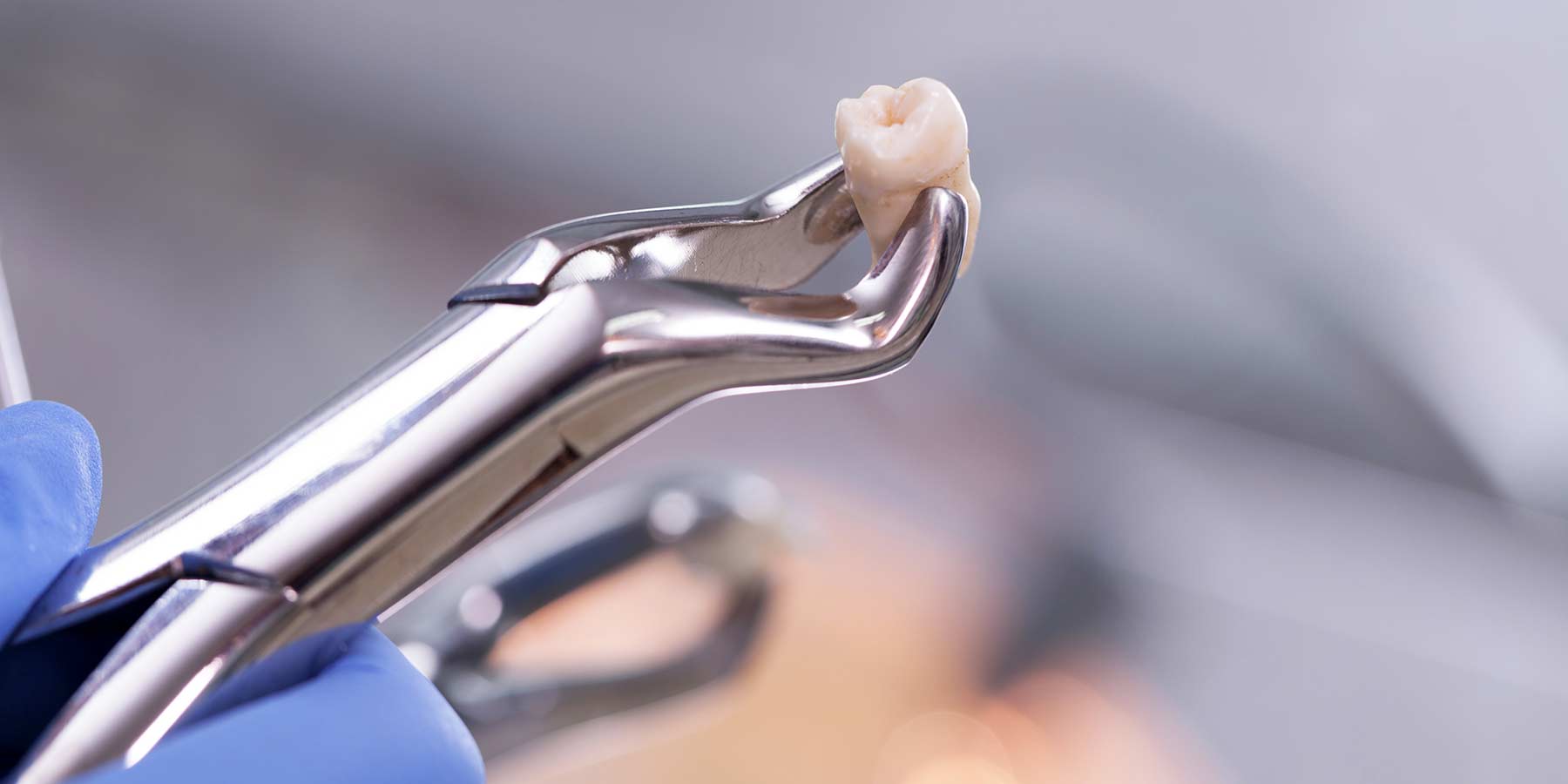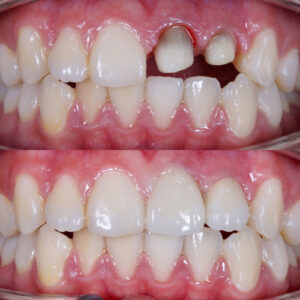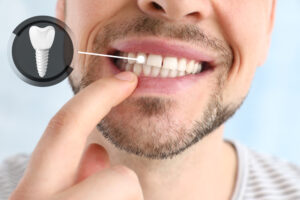
Advancements in modern dental technologies and the refinement of various techniques have significantly reduced pain levels for dental patients and made a trip to the dentist a lot less frightening. Even with all the improvements, it’s still common to feel a bit uneasy at the thought of tooth extractions, but at Dental Health Associates we use a three-part approach to make your extraction as painless as possible.
Most of the patients who follow our instructions recover without any lingering pain in as few as 24 hours, with almost all patients returning to their normal activities the next day.
Types of Extractions
Not all tooth extractions are the same. Some take only minutes, while others require a surgical procedure to remove all remnants of the tooth. Extractions fall into one of two categories:
- Simple Extractions – These extractions typically happen on front teeth and molars that have been damaged or need to be removed to make room in the mouth. For simple extractions we use a local anesthetic to numb the area around the tooth, then we loosen the periodontal ligaments that hold the tooth in place with an elevator tool. Once this is done, we use forceps to lift the tooth away from the gum. We complete the procedure with special bone grafting materials that speed up the healing and clotting processes, and apply gauze.
- Surgical Extractions – Surgical tooth extractions are required for impacted wisdom teeth, those with bone growing around their roots, and teeth that are broken at the gums. In a surgical procedure we use either nitrous gas or a general anesthetic. We then cut into the gums to reach the roots of the tooth. If the roots are unreachable, we trim a piece of the surrounding bone and remove the tooth with traditional extraction methods. If you need a surgical extraction, especially for your wisdom teeth, it’s a good idea to have all of the procedures done at one time, in order to avoid several different recovery periods.
The Dental Health Associates Approach
At Dental Health Associates, we sympathize with your anxiety about tooth extractions, but our three-part patient care approach will help reduce your pain.
- Pre-Procedure – Successful and painless tooth extractions begin with proper planning. Taking a few minutes to plan for your aftercare on the day before your extraction will make your recovery that much easier. Start by securing a ride to and from your appointment. After coming off your anesthetic, you won’t be in a position to drive. You should also discuss medication arrangements with your ride, so they can pick up your pain medication after your procedure. Next, arrange a place in your home where you can rest upright to take pressure off the empty space in your gums. A comfy chair in a quiet room is sufficient in most cases. Finally, refrain from eating after midnight on the day of your procedure. As a word of caution, inform your dentist if you have a cold or infection of any kind leading up to your procedure. The infection can cause complications during your extraction and antibiotics could interact with your pain medication. If you get sick, you may have to reschedule your tooth extractions until your body is healthy.
- During The Procedure – Our dental team specializes in patient care and comfort. Gentle, steady hands guide our tools, and we strive to avoid cutting more tissue than absolutely necessary. Every aspect of our examination and treatment rooms are designed to help you relax and stay comfortable during your procedure. In this way, a relaxed mind refocuses on positive thoughts, and doesn’t artificially create extra pain.
- Aftercare – Proper aftercare is critical in preventing pain after tooth extractions. You’ll need to rest in an upright position until the next morning, while using an ice pack to combat swelling. Keep the ice pack on your face for 15-20 minutes, remove the pack for the same amount of time, then repeat the procedure. As you recover, you need to avoid using a straw or smoking cigarettes and refrain from strenuous activities. These actions are known to cause dry sockets, which break the clots covering the space your tooth used to fill, and can lead to intense pain and/or infection after a few days.
Tooth extractions are no longer the fodder for nightmares popular culture once made them out to be. Our staff at Dental Health Associates constantly seeks to improve our patient service and eliminate unnecessary pain from all of our procedures. Contact us to learn more about our dentists or to schedule a consultation appointment.




